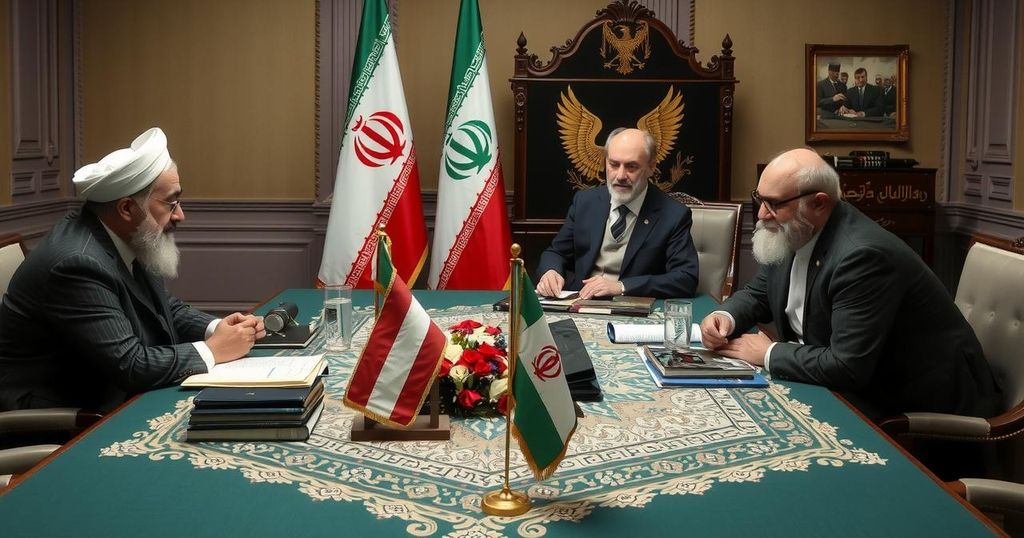The Iranian establishment faces division following the rapid collapse of Bashar al-Assad’s regime in Syria, leading to reassessments of foreign policy amidst the rise of rebel factions and Hezbollah’s diminished role. Iranian leaders are divided on how to navigate the new landscape, with debates on maintaining influence through proxies versus seeking diplomatic engagement. The evolving situation poses challenges to Iranian interests in Syria and beyond.
The rapid collapse of Bashar al-Assad’s regime in Syria has resulted in an unexpected rift within the Iranian establishment regarding its foreign policy direction. Contrary to Tehran’s expectations, the Syrian army fell swiftly under rebel advances, prompting Iranian authorities to reassess their strategy in the region. Reports indicate that as Hezbollah diverted attention to conflicts with Israel, it vacated crucial border checkpoints. As Iranian state media diminished the characterization of opposition fighters from ‘terrorists’ to ‘armed groups’, concerns grew about the safety of Shia shrines, motivating officials to solicit guarantees from rebel factions regarding their protection.
Reactions within Iran have varied significantly; while conservative factions lament the loss of Assad as a strategic ally against extremism, many reformists argue that the unfolding situation may compel Tehran to abandon its rigid ideology, potentially paving the way for improved foreign relations and a more pragmatic diplomatic approach.
In the wake of Assad’s fall, Iranian leaders have demonstrated divergent tactics. Some suggest maintaining diplomatic channels with the newly emerging regime, while others advocate for establishing proxy groups to secure Iranian interests. The strategic landscape is uncertain, particularly concerning Hezbollah’s ability to sustain power without strong Syrian support. Observers posit that declining Iranian influence in Syria could jeopardize its operations in Lebanon and provoke additional scrutiny of its nuclear ambitions from Western powers.
The Iranian leadership has underscored the importance of adapting to this new landscape, with Supreme Leader Ayatollah Ali Khamenei stating that “none of them will achieve their goals” while promising a resilient resistance. Ministry officials have hinted at possible opportunities arising from the discontent of regional powers critical of political Islam. As the situation progresses, questions remain about how Iran will evolve its foreign policy in a post-Assad Syria and safeguard its interests in the Middle East.
The article discusses the Iranian establishment’s internal discord following the swift fall of the Assad regime in Syria, emphasizing the implications for Iran’s foreign policy and regional strategy. The unexpected resilience of Syria’s rebel factions and the retreat of Hezbollah’s forces have prompted Iranian leaders to reconsider their approach to managing relationships within the complex geopolitical landscape in the Middle East. The article critically analyzes the reactions from various factions within Iran, exploring the potential for shifts in policy that may emerge from the perceived strategic loss associated with Assad’s downfall.
The current crisis in Syria presents a pivotal moment for Iranian policymakers, prompting a recalibration of strategies in the face of diminishing influence. The Iranian establishment is split between those who wish to maintain a hardline approach and those advocating for reform and diplomacy. As regional dynamics evolve, Iran’s ability to adapt may determine its future role and influence in the Middle East, with significant implications for its relationships with other key players in the region.
Original Source: www.middleeasteye.net






